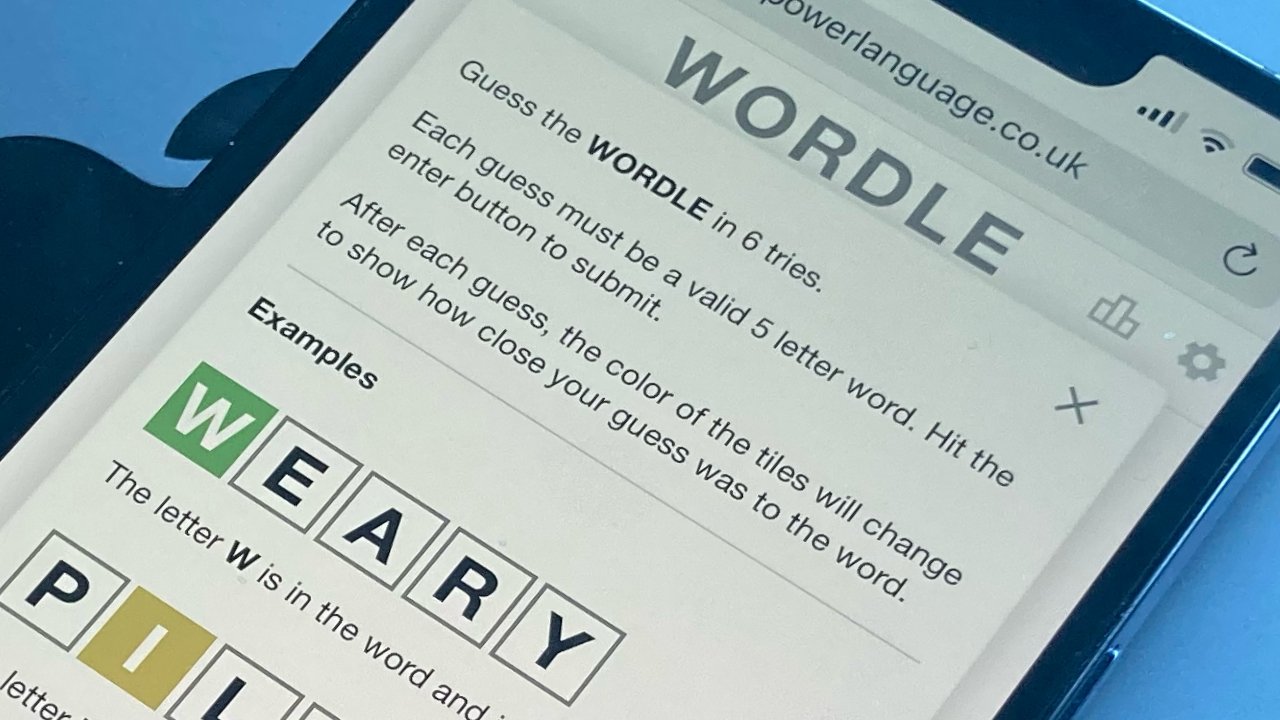Amidst backlash, Apple has purged most of the Wordle clones from the App Store
Apple appears to have removed most of the unlicensed Wordle game clones that had been flooding the App Store.

The genuine Wordle is played through a browser, not an app
Following an outcry about the free word-guessing Wordle game being cloned for profit by multiple app developers, the majority have been removed. Google has seemingly also removed many from the Google Play Store.
Neither company has announced the move, which has seem the blatant ripoffs purged. These include the unofficial "Wordle - the App," by Zach Shakked, which took creator Josh Wardle's free web game and charged users $30 per month.
The clones have been downloaded tens of thousands of times, and may have been the impetus for the purge. Shakked, who has previously decried app copycats, also publicly boasted about how well his clone was doing.
Apple's App Store Guidelines preclude such clones, though each one was originally passed as approved by the company's app curators. Apple has previously been criticized for allowing copycat apps, but it appears to have retrospectively taken steps to prevent this particular spate of them.
Read on AppleInsider

The genuine Wordle is played through a browser, not an app
Following an outcry about the free word-guessing Wordle game being cloned for profit by multiple app developers, the majority have been removed. Google has seemingly also removed many from the Google Play Store.
Neither company has announced the move, which has seem the blatant ripoffs purged. These include the unofficial "Wordle - the App," by Zach Shakked, which took creator Josh Wardle's free web game and charged users $30 per month.
The clones have been downloaded tens of thousands of times, and may have been the impetus for the purge. Shakked, who has previously decried app copycats, also publicly boasted about how well his clone was doing.
Apple's App Store Guidelines preclude such clones, though each one was originally passed as approved by the company's app curators. Apple has previously been criticized for allowing copycat apps, but it appears to have retrospectively taken steps to prevent this particular spate of them.
Read on AppleInsider

Comments
But can 20 random twitter users determine the original, out of dozens of "clones" and "copycats" apps? It's going to take way more than 20 random twitter users to come up with 1 that can. That's the hard part of being a curator. Apple curator can easily spot all the similar apps but it's going to be hard to determine which are clones and copycats and which one is the original or an original. Just because an app is first to be in the Apple App Store, it doesn't make it an original. If Apple curator were to stick with only "an original" can be in the Apple App Store, then Warble free web based "Wordle", would also be banned. He might have been first to name the word game "Wordle", but the word game itself is not an original. It's still a clone or copycat, of a prior popular 80's word game, "Lingo". And "Lingo" itself, might not be an original.
How would an Apple App Store curator know whether an app that appears to be a "clone" or "copycat" of Wordle, isn't a clone or copycat of "Lingo". Like what "Wordle" is to begin with?